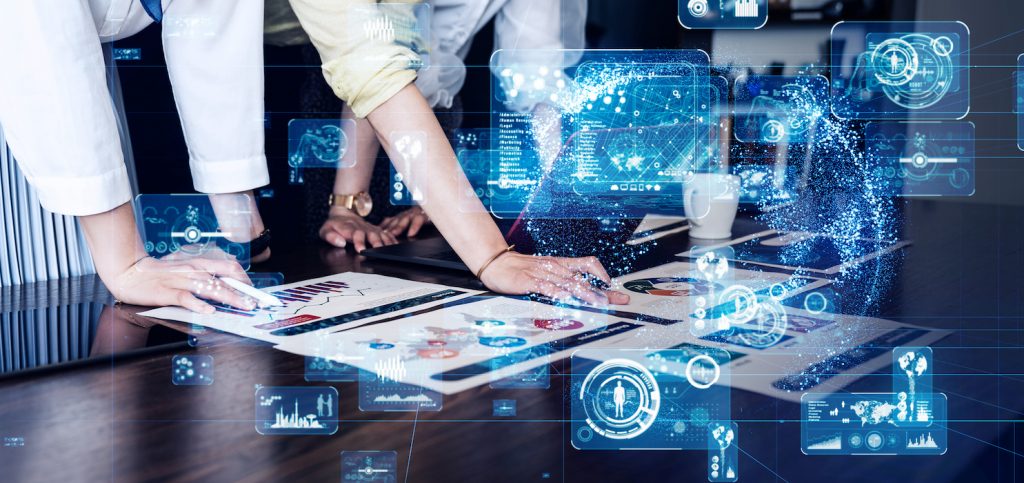The Future of Tech: A Glimpse into Tomorrow
30.07.2024.The world of technology is evolving at an unprecedented pace, reshaping every facet of our lives. As we stand on the cusp of a new era, it's intriguing to imagine the future of tech and its potential to transform society. From artificial intelligence (AI) and quantum computing to biotechnology and space exploration, the innovations on the horizon promise to revolutionize the way we live, work, and interact. This article explores some of the most promising advancements and their potential impacts on our future.

1. Artificial Intelligence and Machine Learning
AI and machine learning have already made significant strides, but their future applications are boundless. As algorithms become more sophisticated, we can expect AI to permeate every industry, enhancing efficiency and decision-making processes. In healthcare, AI-driven diagnostics and personalized medicine could revolutionize patient care. In finance, advanced algorithms will enable more accurate risk assessments and fraud detection. Moreover, as AI continues to learn from vast datasets, it could lead to the development of more intuitive virtual assistants, autonomous vehicles, and smart cities.
2. Quantum Computing
Quantum computing represents a paradigm shift in computational power. Unlike classical computers, which use bits as the smallest unit of data, quantum computers use quantum bits, or qubits, that can exist in multiple states simultaneously. This allows quantum computers to solve complex problems exponentially faster than their classical counterparts. In the future, quantum computing could revolutionize cryptography, material science, and drug discovery. For instance, it could break current encryption methods, necessitating a new era of cybersecurity, and enable the discovery of new materials with unprecedented properties.
3. Biotechnology and Genetic Engineering
The convergence of biotechnology and genetic engineering is set to redefine healthcare and agriculture. CRISPR-Cas9, a revolutionary gene-editing tool, has opened the door to precise genetic modifications, offering potential cures for genetic disorders and the ability to engineer crops with improved yields and resilience. The future may see the rise of personalized medicine, where treatments are tailored to an individual's genetic makeup. Additionally, advances in synthetic biology could lead to the creation of new organisms designed to produce biofuels, clean up environmental pollutants, or serve other beneficial purposes.
4. Space Exploration and Colonization
The exploration of space is no longer confined to government agencies; private companies are now leading the charge. The future of space exploration holds the promise of establishing human colonies on the Moon and Mars, potentially making humanity a multi-planetary species. Advances in rocket technology, habitat construction, and life support systems are critical to this endeavor. Furthermore, space tourism may become a reality, offering ordinary people the chance to experience space travel. The commercialization of space could also lead to the exploitation of extraterrestrial resources, such as mining asteroids for precious metals.
5. The Internet of Things (IoT) and Connectivity
The Internet of Things (IoT) is creating a world where everyday objects are interconnected and communicate with each other. This network of smart devices is expected to grow exponentially, creating a more efficient and convenient living environment. In the future, smart homes could anticipate our needs, optimizing energy use and enhancing security. Smart cities, powered by IoT, could improve urban planning, reduce traffic congestion, and enhance public services. The rollout of 5G and beyond will further accelerate this connectivity, enabling faster and more reliable communication.
6. Ethical and Societal Considerations
As we embrace these technological advancements, it is crucial to consider their ethical and societal implications. The rise of AI and automation raises questions about job displacement and the future of work. Ensuring data privacy and security becomes paramount as more personal information is collected and analyzed. Furthermore, the potential for genetic editing and AI decision-making poses ethical dilemmas that society must address. As we navigate these challenges, it is essential to establish regulatory frameworks and ethical guidelines that safeguard human rights and promote the responsible use of technology.
Conclusion
The future of tech is both exciting and daunting. The advancements on the horizon promise to revolutionize industries, enhance our quality of life, and address some of the world's most pressing challenges. However, they also come with significant responsibilities. As we move forward, it is crucial to approach these technologies with caution, ensuring that they are developed and deployed ethically and sustainably. By doing so, we can harness the power of technology to create a better future for all.
komentiraj (0) * ispiši * #
